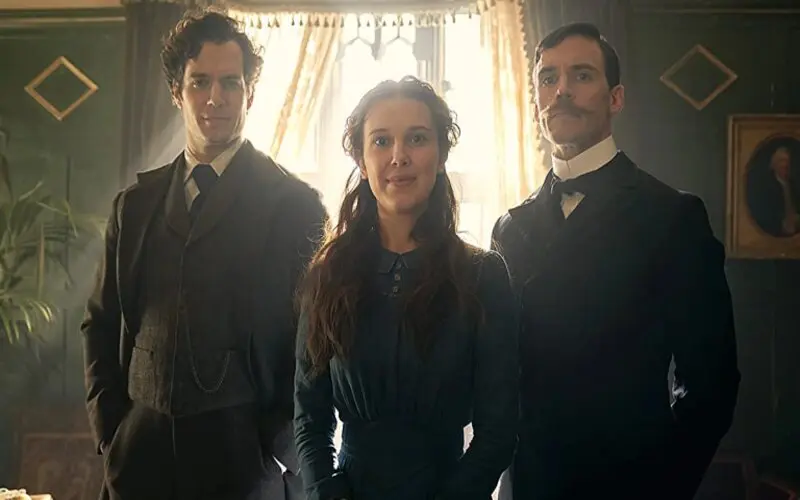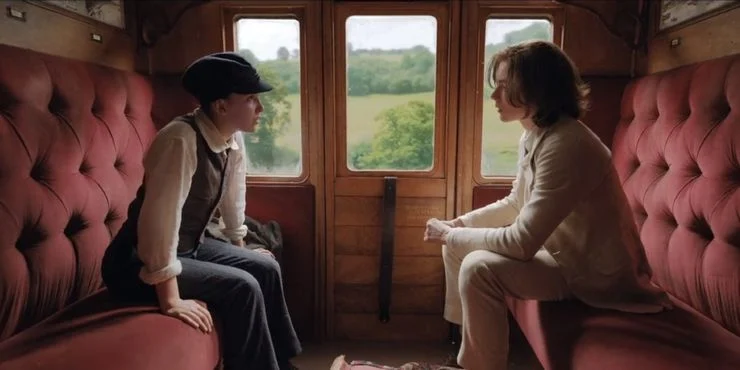ENOLA HOLMES
- Rosebell Narie Otaza
- Nov 8, 2021
- 3 min read

Millie Bobby Brown was called upon to be wise beyond her years, solve problems that were both emotionally and physically hard, and provide a clear path forward in a world that was dark and confused in her unforgettable depiction of the troubled Eleven on "Stranger Things." Brown must carry all of those obligations again as the title character in "Enola Holmes," but this time she gets to have a joy doing it. Brown is absolutely stunning in this film, exuding the same adult presence and grace as she did in the Netflix sci-fi series, as well as an engaging playful side and perfect comic timing. It's as if I'm discovering her all over again, and it's wonderful. And, if the ending of "Enola Holmes" is any indicator, this could be the start of a much-needed female-led franchise.

"Enola Holmes," based on Nancy Springer's Young Adult novel series, sees Sherlock's younger sister stirring up mischief, solving mysteries, and carving out a place for herself in aristocratic Victorian England. Despite the fact that she has a renowned sibling, she is very much her own person when it comes to playing detective. Emmy winner Harry Bradbeer infuses this staid atmosphere with an infectious energy by having Enola break the fourth wall right away with amusingly self-aware asides, a technique he utilized regularly on the numerous episodes of "Fleabag" he directed. She speaks to us while riding her bicycle through rolling hills and large fields of flowers, looking straight into the camera-until she bites it and falls flat on her face in the dirt. "Cycling isn't one of my main skills," she admits as she dusts herself off, and we're captivated.

Enola mentions in the Jack Thorne script that her name is "alone" spelt backward. And she and her utterly unconventional mother (a well-cast Helena Bonham Carter) are precisely that as they wander around their sprawling country estate painting, reading, and even playing tennis and archery indoors. (Carter is an inspiration to all of us struggling parents as the coolest homeschool teacher ever.) But then she vanishes as Enola reaches 16, leaving her daughter to fend for herself with a series of cryptic clues and a pair of disapproving older brothers who've returned to check on her.
As the snobby, scheming Mycroft, Sam Claflin gets a mustache to twirl, and Henry Cavill is the hunkiest Holmes ever—truly, it's hard to conceive how he had time to hit the gym between solving murders. However, while Sherlock seems to admire his younger sister's bright mind and sprightly disposition, Mycroft is disgusted by how disheveled and vulgar she has become, and insists on sending her to an austere finishing school to make her into a respectable woman.
"I don't want a husband," Enola declares emphatically to Mycroft. "And there is something else that will have to be educated out of you," he adds, defining the film's underlying fundamental conflict: the fight for female liberty in a patriarchal culture that refuses to change. While the film takes place during the debate over women's suffrage, and Enola's battle cry (passed down from her forward-thinking mother) is "Our future is up to us," the film is primarily a fun, family-friendly adventure replete with secret codes to decipher and hidden treehouses in the woods.

When Enola journeys to London by train to find her mother, she meets and unwittingly rescues Viscount Lord Tewksbury, Marquess of Basilwether (Louis Partridge), who is also a runaway adolescent like her. And, like her, he has no desire to follow the affluent route that his family has planned for him. The charming Partridge has a youthful Mick Jagger vibe about him, with his dark, floppy hair and mischievous smile, and he and Brown have a sprightly, hyper-verbal chemistry.

References: Christy Lemire, 2020, September 23 https://www.rogerebert.com/reviews/enola-holmes-movie-review-2020




Comments